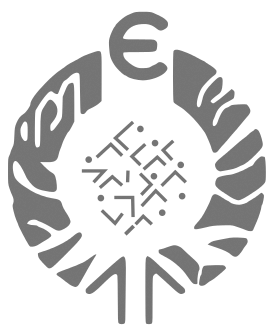Information translated by Google translate ![]()
BASIC DATA
Surface, 1,399 km²
Population, 50,844 h. (2018)
Density, 35.2 h / km²
Capital, Tørshavn
Languages: Faroese and Danish (official).
Ethnic composition: Faroese 87.6%, Danish 7.8%, and other 3% (est. 2018).
Religions: Protestant (Lutheran) 89.3%, other 0.7%, non-religious 4%, and not specified 6% (est. 2011).
Urban population, 42.1%
Inhabitants per hospital bed, 244
Political system, autonomous territory
DEMOGRAPHIC INDICATORS
Birth rate, 14.3 ‰
Mortality rate, 8.8 ‰
Vegetative growth, 0.55%
Life expectancy at birth: men, 78 years; women, 83.2 years (est. 2017)
ECONOMY
Agriculture: potatoes, fodder plants and barley.
Livestock: cattle and sheep.
Fishing: cod, salmon, herring, mackerel and others.
Industry: fishing, canning, tourism, repair of small boats and crafts.
GDP per capita: $ 40,000 (est. 2014).
Distribution of the active population by sectors:
· Agriculture, 15%
· Industry, 15%
· Services, 70% (est. 2016)
Foreign trade.
· Exports: fish (frozen, salted and oils), stamps, boats.
1.310 million dollars
· Imports: products for domestic consumption, oil, machinery, transport equipment, raw materials and cars.
978 million dollars (est. 2016)
HISTORY (XX-XXI centuries)
1938: Faroese became the official language.
1940: Germany invaded Denmark, and this gave reason for the archipelago to proclaim itself independent, but Britain occupied it and kept it under its dominion.
1945: The islands were returned to Denmark, which proposed the implementation of a limited system of self-government.
1946: Plebiscite rejecting the Danish Government project.
1948: Denmark recognizes the autonomy of the islands, reserving only its external relations.
1953: The Legislative Assembly (Landsting) of the Faroes is represented by two deputies in the Danish Parliament (Folketing).
1958: Crisis in the relations of both governments when the islands demanded that Denmark negotiate with Great Britain the extension of the limit of its territorial waters.
1973: In the exercise of their autonomy, the Faroes chose to remain outside the European Community (current European Union).
1977: The fishing limits of the archipelago extended up to 200 nautical miles.
1980: In the elections held, the Social Democratic Party lost the majority after 19 years of government; the Paulli Ellefsen Unionist Party constituted a conservative coalition Government.
1988: The legislative elections placed the territory at a crossroads similar to that of 1980, because the Social Democrats lost their dominance against the Popular Party, led by Jógvan Sundstein.
1989: The president of the Popular Party was able to present a center-right government coalition, which represented a majority of 18 of the 32 seats of the Løgting (Parliament).
1990: Prime Minister J. Sundstein was forced to call new early elections, of which the Social Democratic Party achieved first position with 10 seats of the Løgting, and its leader, Alti P. Dam was appointed new prime minister.
1992: The law of 1907 was repealed, according to which the sale of alcoholic beverages on the islands was prohibited.
1994: New legislative elections, imposing the Unionist Party over the Popular Party and the Social Democrats; Social Democratic Prime Minister Marita Petersen had to resign in favor of Edmund Joensen of the Unionist Party.
1997: The Unionist Party replaced the Social Democratic Party and E. Joensen remained prime minister.
2001: The referendum on independence is canceled after Denmark threatened to cut annual subsidies if there is a result in favor of independence.
2003: The pro-independence party leaves its coalition.
2004: After the elections a new coalition formed by three parties is created, Jóannes Eidesgaard (of the Social Democratic Party) becomes the Prime Minister.
2006: The import of Icelandic whale meat begins, despite international bans.
2008: A new coalition is formed after the elections, but Eidesgaard continues as Prime Minister.
2009: The government coalition collapses and Kaj Leo Johannesen (of the Unionist Party) is consolidated as the Prime Minister.
2011: Early parliamentary elections take place and Johannesen continues as Prime Minister.
2015: The Social Democratic Party wins the elections and Aksel V. Johannesen becomes the new Prime Minister.

COLABORA
con la actualización de esta información
ELKARLANEAN
informazio hau eguneratuta
COLLABORATE
with the update of this information
inst-europ@inst-europ.org
